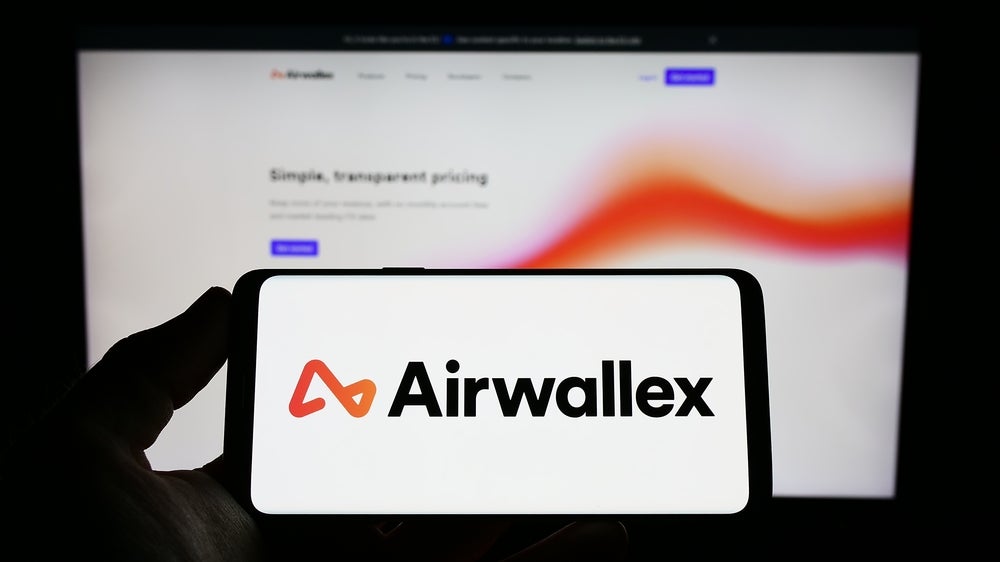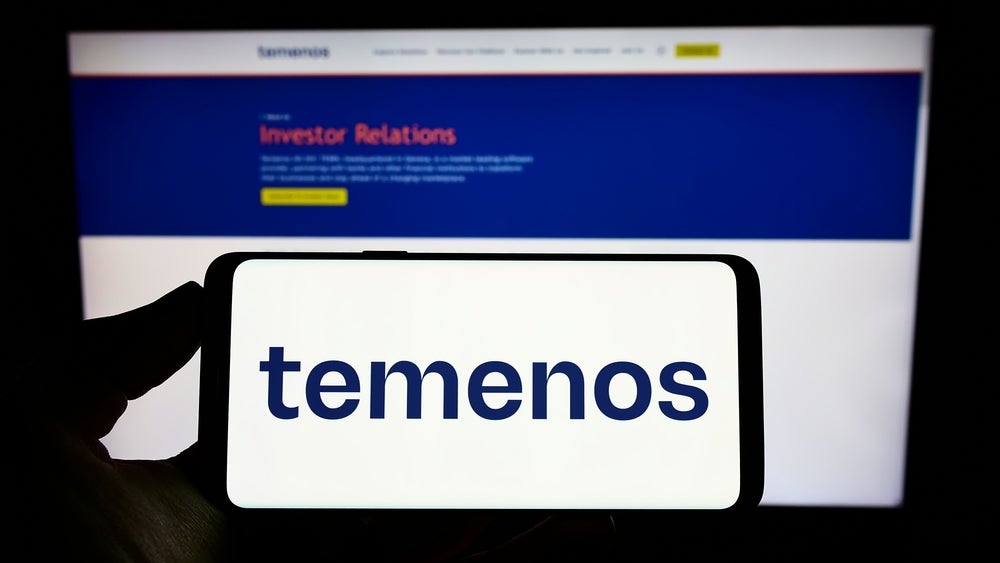The collapse of e-bill player Bill Express, and
with it the Bopo prepaid card, has dealt a blow to the fledgling
Australian prepaid industry and incurred the wrath of merchants
across the country, as Victoria Conroy reports. But the
demise of Bill Express could provide opportunities for other
prepaid players.
with it the Bopo prepaid card, has dealt a blow to the fledgling
Australian prepaid industry and incurred the wrath of merchants
across the country, as Victoria Conroy reports. But the
demise of Bill Express could provide opportunities for other
prepaid players.
Australia’s prepaid industry is reeling from
the collapse of e-bill payment network and prepaid card provider
Bill Express, which went into administration on 8 July, owing more
than A$180 million ($175 million).
the collapse of e-bill payment network and prepaid card provider
Bill Express, which went into administration on 8 July, owing more
than A$180 million ($175 million).
Bill Express was an in-person bill payment
system, which operated across Australia through participating
newsagents, and also provided electronic production distribution,
payments processing and in-store promotional media businesses. It
was also the owner and operator of the Bopo prepaid card programme,
a Visa-branded reloadable card, accepted at more than 3,500
newsagents across the country.
system, which operated across Australia through participating
newsagents, and also provided electronic production distribution,
payments processing and in-store promotional media businesses. It
was also the owner and operator of the Bopo prepaid card programme,
a Visa-branded reloadable card, accepted at more than 3,500
newsagents across the country.
The collapse of Bill Express has shocked
investors, given that last year it reported revenues of over A$1
billion and A$40 million in earnings.
investors, given that last year it reported revenues of over A$1
billion and A$40 million in earnings.
Many investors in Bill Express ploughed money
into the company on the back of its business model, which took a
percentage of each electronic bill payment it made, along with fees
coming from its Bopo card. Bill Express also sold prepaid mobile
phone credit on behalf of major telecom operators like Vodafone and
Telstra – sales of mobile phone credits accounted for around 80
percent of the company’s revenue last year.
into the company on the back of its business model, which took a
percentage of each electronic bill payment it made, along with fees
coming from its Bopo card. Bill Express also sold prepaid mobile
phone credit on behalf of major telecom operators like Vodafone and
Telstra – sales of mobile phone credits accounted for around 80
percent of the company’s revenue last year.
Now, the spotlight is being shone on the trail
of murky transactions involving Bill Express and its related
companies such as On Q and TBS Group and the level of borrowings
made by Bill Express from the same entities. TBS Group is a private
company located at the same business address as Bill Express and On
Q. According to company documents, TBS is a sub-contractor to Bill
Express and provides call centre services and technical support.
TBS developed the original software and equipment on which the Bill
Express payments system operated.
of murky transactions involving Bill Express and its related
companies such as On Q and TBS Group and the level of borrowings
made by Bill Express from the same entities. TBS Group is a private
company located at the same business address as Bill Express and On
Q. According to company documents, TBS is a sub-contractor to Bill
Express and provides call centre services and technical support.
TBS developed the original software and equipment on which the Bill
Express payments system operated.
Former On Q chairman and managing director
Peter McDougall alleges in documents filed with Australia’s supreme
court that in 2004, Bill Express made a A$4.7 million payment to
TBS for “prepayment of research and development”. According to
McDougall, this payment was never discussed at board level until
revealed in the 2004 annual accounts and was for research and
development on software already in existence.
Peter McDougall alleges in documents filed with Australia’s supreme
court that in 2004, Bill Express made a A$4.7 million payment to
TBS for “prepayment of research and development”. According to
McDougall, this payment was never discussed at board level until
revealed in the 2004 annual accounts and was for research and
development on software already in existence.
The collapse of Bill Express has also hit one
major outside investor in particular – banking group ANZ, which has
an exposure of around A$50 million and owned 13.2 percent of Bill
Express. An ANZ spokesperson said it was “unlikely” it would recoup
any losses from its investment with Bill Express. ANZ also has to
stump up the cost of replacing around 4,700 EFTPOS terminals to
replace Bill Express terminals at merchant locations.
major outside investor in particular – banking group ANZ, which has
an exposure of around A$50 million and owned 13.2 percent of Bill
Express. An ANZ spokesperson said it was “unlikely” it would recoup
any losses from its investment with Bill Express. ANZ also has to
stump up the cost of replacing around 4,700 EFTPOS terminals to
replace Bill Express terminals at merchant locations.
Merchants themselves, including some who are
now unable to process bill payments or load money onto Bopo prepaid
cards, have been left with expensive rent deals on Bill Express
equipment which will never be used again.
now unable to process bill payments or load money onto Bopo prepaid
cards, have been left with expensive rent deals on Bill Express
equipment which will never be used again.
According to the Australian Newsagents
Federation (ANF), which heavily promoted Bill Express among its
newsagent members, newsagents have no choice but to continue paying
around A$500 a month for terminals and software made redundant by
the demise of Bill Express. It is estimated such payments provided
around A$90 million in capital for Bill Express. The ANF is also
coming under scrutiny because of its links with Bill Express – in
return for promoting Bill Express among its members, it received
around A$200,000 a year in fees from Bill Express.
Federation (ANF), which heavily promoted Bill Express among its
newsagent members, newsagents have no choice but to continue paying
around A$500 a month for terminals and software made redundant by
the demise of Bill Express. It is estimated such payments provided
around A$90 million in capital for Bill Express. The ANF is also
coming under scrutiny because of its links with Bill Express – in
return for promoting Bill Express among its members, it received
around A$200,000 a year in fees from Bill Express.
Questions are now being asked about the status
of money already loaded onto Bopo cards. CUSCAL, an Australian
credit union which issued Bopo cards, issued a press release on 11
July stating that customer deposits on Bopo cards are safe.
of money already loaded onto Bopo cards. CUSCAL, an Australian
credit union which issued Bopo cards, issued a press release on 11
July stating that customer deposits on Bopo cards are safe.
“Cardholder funds are being kept safe by
CUSCAL,” the statement said. “It is important to highlight that
CUSCAL is a separate company to Bill Express. Cardholders can be
assured the value stored on Bopo cards will be returned to them.
However, the administrator now managing Bill Express is following
due process and unfortunately this is limiting the services and
functionality available to Bopo cardholders.
CUSCAL,” the statement said. “It is important to highlight that
CUSCAL is a separate company to Bill Express. Cardholders can be
assured the value stored on Bopo cards will be returned to them.
However, the administrator now managing Bill Express is following
due process and unfortunately this is limiting the services and
functionality available to Bopo cardholders.
“At the time of publication on 11 July,
cardholders can still make EFTPOS purchases and ATM withdrawals,
but cannot reload money on their cards. In the event any
cardholders cannot use ATM or EFTPOS purchases to withdraw funds,
CUSCAL has established a process to facilitate reimbursement of
funds stored within Bopo card accounts.”
cardholders can still make EFTPOS purchases and ATM withdrawals,
but cannot reload money on their cards. In the event any
cardholders cannot use ATM or EFTPOS purchases to withdraw funds,
CUSCAL has established a process to facilitate reimbursement of
funds stored within Bopo card accounts.”
However, on 18 July, CUSCAL announced that
administrators of Bill Express would be cutting off ATM and EFTPOS
usage of Bopo cards by mid-August, and people holding a Bopo card
are advised to withdraw or spend the balance of their account
before then.
administrators of Bill Express would be cutting off ATM and EFTPOS
usage of Bopo cards by mid-August, and people holding a Bopo card
are advised to withdraw or spend the balance of their account
before then.
CUSCAL general manager of products and
operations David Heine said: “After August 15, our cardholders will
no longer be able to enjoy the functionality available through both
EFTPOS and ATM devices.”
operations David Heine said: “After August 15, our cardholders will
no longer be able to enjoy the functionality available through both
EFTPOS and ATM devices.”
Meanwhile, ANZ is anxious to prevent payment
network rivals such as eziPass and other banks like St George from
taking over part of the Bill Express network with their own
propositions. eziPass has already made moves to recruit affected
newsagents into selling Visa-branded prepaid cards from Australian
prepaid provider SCX Global in place of the Bopo cards, which were
particularly popular among 18-to-30 year-olds thanks to the large
range of card personalisation options available to cardholders.
Bill Express spent around A$3.5 million marketing the business in
the six months to December 2007.
network rivals such as eziPass and other banks like St George from
taking over part of the Bill Express network with their own
propositions. eziPass has already made moves to recruit affected
newsagents into selling Visa-branded prepaid cards from Australian
prepaid provider SCX Global in place of the Bopo cards, which were
particularly popular among 18-to-30 year-olds thanks to the large
range of card personalisation options available to cardholders.
Bill Express spent around A$3.5 million marketing the business in
the six months to December 2007.
SCX Global general manager of products and
marketing Jason Dempsey told CI: “The collapse of Bill Express is
unfortunate and untimely from an overall prepaid category
perspective. I sincerely hope that the general public and
newsagents do not see the Bopo Visa prepaid card, and by
association the category, as a catalyst or cause of the Bill
Express woes. Bopo was a strong product proposition in
Australia.
marketing Jason Dempsey told CI: “The collapse of Bill Express is
unfortunate and untimely from an overall prepaid category
perspective. I sincerely hope that the general public and
newsagents do not see the Bopo Visa prepaid card, and by
association the category, as a catalyst or cause of the Bill
Express woes. Bopo was a strong product proposition in
Australia.
“Obviously there will now be some upside for
our Canvas Visa prepaid card which, as a general-purpose reloadable
card, targets similar segments. In partnership with eziPass, we are
delighted to be able to offer newsagents a full suite of Visa
prepaid products for both sale and reloads with higher commissions
than they were previously receiving from Bill Xpress.
our Canvas Visa prepaid card which, as a general-purpose reloadable
card, targets similar segments. In partnership with eziPass, we are
delighted to be able to offer newsagents a full suite of Visa
prepaid products for both sale and reloads with higher commissions
than they were previously receiving from Bill Xpress.
“To be clear, SCX products and the eziPass
point of sale system do not utilise any Bill Express technology or
network.”
point of sale system do not utilise any Bill Express technology or
network.”







